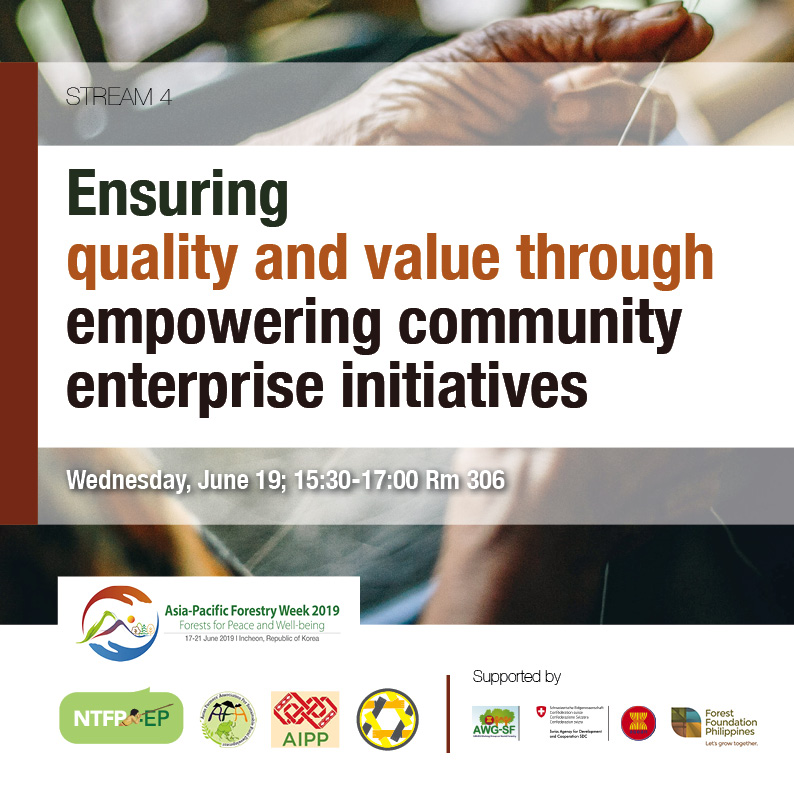June 30, 2019
Community forestry enterprises have proven to contribute significantly in raising rural incomes and improving food security. In their analysis, the Program on Forests (PROFOR) in 2018 highlighted that at the global level, it is estimated that small and medium-sized enterprises account for an estimated 45 million, or about 80-90 percent of enterprises within the forestry sector. But these enterprises face challenges without initial investments, capacity and access to markets to support inclusive, responsible business.

In this session, NTFP-EP along with its consortium partners AFA and AIPP, have highlighted the emerging successful models leading to value addition and quality business endeavors for community forestry beneficiaries.
Aadhimalai, a trailblazing producer company of over 1200 indigenous women and men, presented its story of consolidating, processing and marketing farm and NTFP produce from the Nilgiris Biosphere Reserve in Southern India. They shared their struggles and corresponding strategies to remain on top of their game. Pgakenyaw (Karen) for Sustainable Development (PASD) discussed how Hin laad nai initiatives have documented and developed the process of indigenous food systems to prepare slow food offerings. In collaboration with chefs from different parts of the country, they have developed slow food meals with ingredients naturally sourced out from their forests. The Lao Farmers Network presented their advocacies and economic efforts to add value to Lao rural producers. NTFP-EP also presented one of its models of green intermediaries, CustomMade Crafts Center (CMCC) as a responsible initiative to effectively bring community products to urban centers. These collective examples across the “forest to fork” distribution chain, provide a collection of interventions emphasizing multiple values of local initiatives resulting in multiple socio-cultural and economic benefits.
KEY MESSAGES
LIST OF SPEAKERS
Crissy Guerrero, Senior Adviser, NTFP-EP Asia
Moderator
Femy Pinto, Executive Director, NTFP-EP Asia
Introduction and Key Messages
Dr. Prasert Trakansuphakon, Chairperson, Pgakenyaw (Karen) for Sustainable Development (PASD)
Slow food and other enterprise initiatives: The case of Hin laad nai, Thailand
Jestin Pauls, Production and Sales Liaison Manager, Aadhimalai Indigenous peoples and farmers producers – the Producers company experience in Southern India
Phouttasinh Phimmachanh, Lao Farmer Network Cooperative
Lao Farmer Network Cooperatives and cooperative union in Lao PDR
Julius Domingo, Production Officer, CustomMade Crafts Center Philippines
Green intermediaries – empowering communities and providing credibility